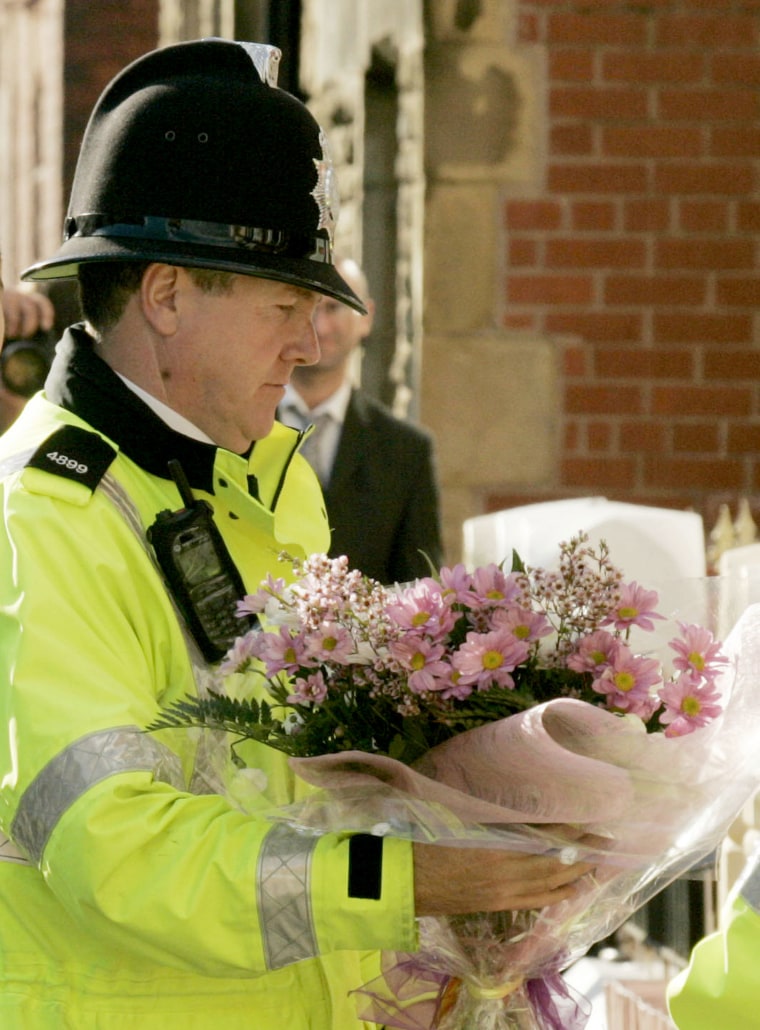Liverpool is a city that is used to hard knocks. It is a country within a city, with a culture, a dialect and a way of looking at the world entirely of its own.
To be born a "scouser," as the city's inhabitants are called, is a badge of honor. They're famously friendly. But neither do they forget if you offend.
The city, from where many thousands of emigrant Irish set sail for the United States, has known great adversity and great triumphs. It was repeatedly bombed in the blitz of the 40's. By the 60's it was home to the Beatles.
And it was also home to Ken Bigley, the British hostage brutally murdered on Friday after three weeks in captivity in Iraq.
Collective will of the community
If any community, by collective will, could have saved him, if a warm-hearted spirit could have moved his ruthless, uncaring captors, Bigley could have come from no better place. They rallied around.
For these past 20 days his family has been at the forefront of a tireless campaign to get the 62-year-old engineer out alive. They fired up the British newspapers, which carried the story all over their front pages. It led TV and radio bulletins for days.
The Bigleys fought like tigers, appealing to the world for help. They confronted Tony Blair's government over its decision to go to war. They blamed the prime minister's policies for Bigley's predicament.
For his part, Blair found the issue overshadowing his Labor Party convention and, once again, had to divert from domestic policy issues to the one that won't go away: Iraq.
Blair responded personally, calling the family to talk with them. He said his government would do all in its power to get Bigley's release, except negotiate with terrorists. That was non-negotiable.
Family did all they could
The family arranged for thousands of leaflets in Arabic to be distributed in Iraq. They worked with leading British Muslims, who sent a delegation to the country. They recorded messages for Arab TV, appealing directly to the kidnappers.
They drove themselves to face the throngs of media camped outside their homes, even while Bigley's 86-year-old mother succumbed to the strain of seeing her son shackled and pleading for his life and was hospitalized.
Their friends and neighbors, the whole city, was willing them to succeed.
At one event, members of seven different faiths toured the city's temples, mosques and synagogues finishing with a symbolic walk down the aptly-named Hope Street that links Liverpool's two Christian cathedrals.
Hope against hope
And for a time it seemed that this hope-against-hope might just succeed. Bigley's two American colleagues, Eugene Armstrong and Jack Hensley, were quickly murdered, their deaths exploited in gruesome videos by terrorists who have learned the tricks of their trade.
Even amongst cynical, hard-bitten journalists who were following the story, there was a sense that maybe, just maybe, the family could pull this off. Every day was perhaps a step to freedom.
But it was a cruel, cold-hearted deceit. Those who killed Bigley are beyond the reach of decent human feelings, lost in some evil, twisted world of their own that is a million light years from the friendly streets of Liverpool. There are many Muslims in that city who tonight will share the grief and dismay and despise those who caused it.
Bigley's brother Philip accepted the death with a dignity the killers denied his older sibling. He said the government “did everything it possibly could do to secure [his] release” and he asked the family be allowed to step out of the spotlight so that they could mourn their loss.
Fifteen years ago the city was devastated by a disaster in which 96 Liverpool soccer fans were crushed to death in a stampede at a game. It was remarkable then to watch the community come together in its grief.
No surprise that they adopted, as their “national anthem,” the plaintive sixties “Liverpool-sound” song: “You'll never walk alone.”
Saturday has been declared an official day of mourning for Ken Bigley. Another hard knock for the city. And one they won't forget.
